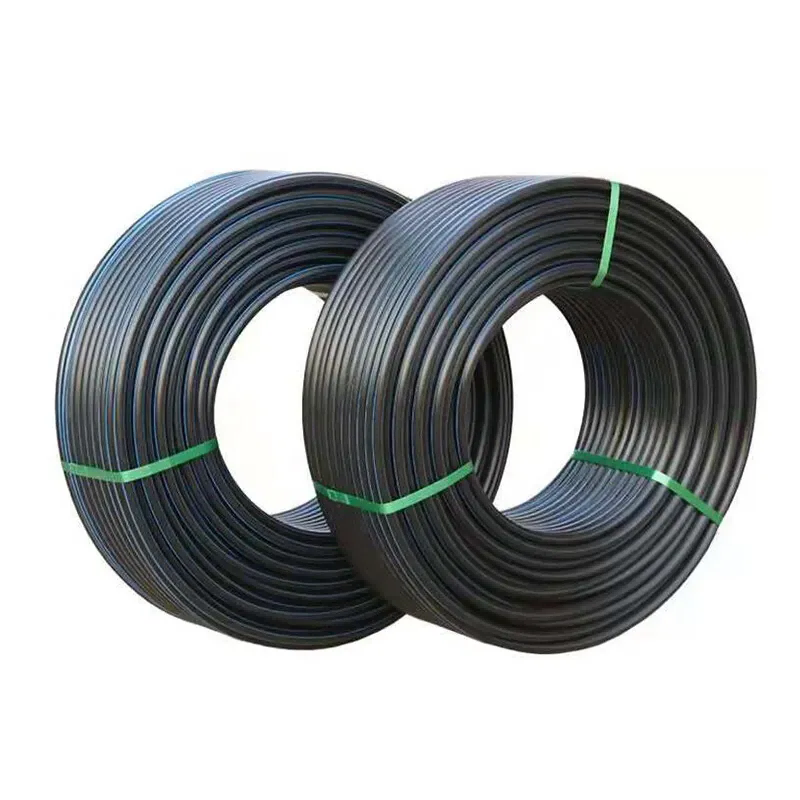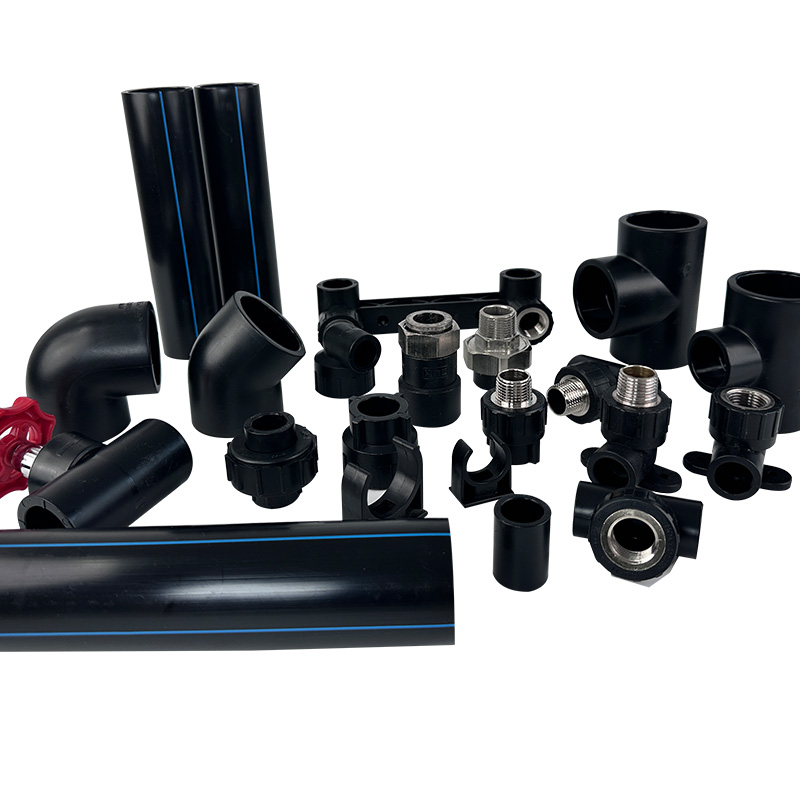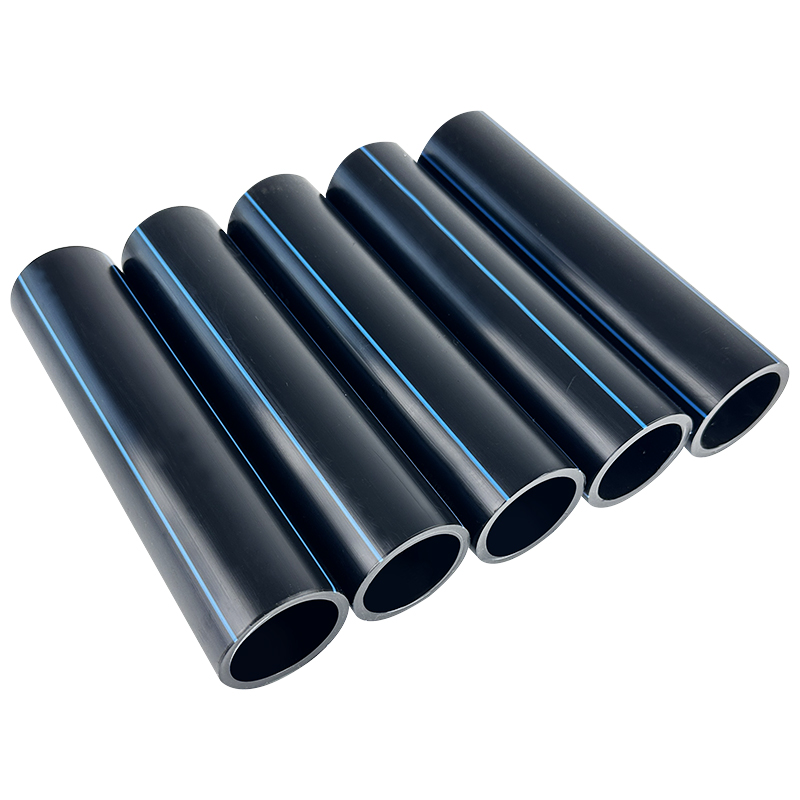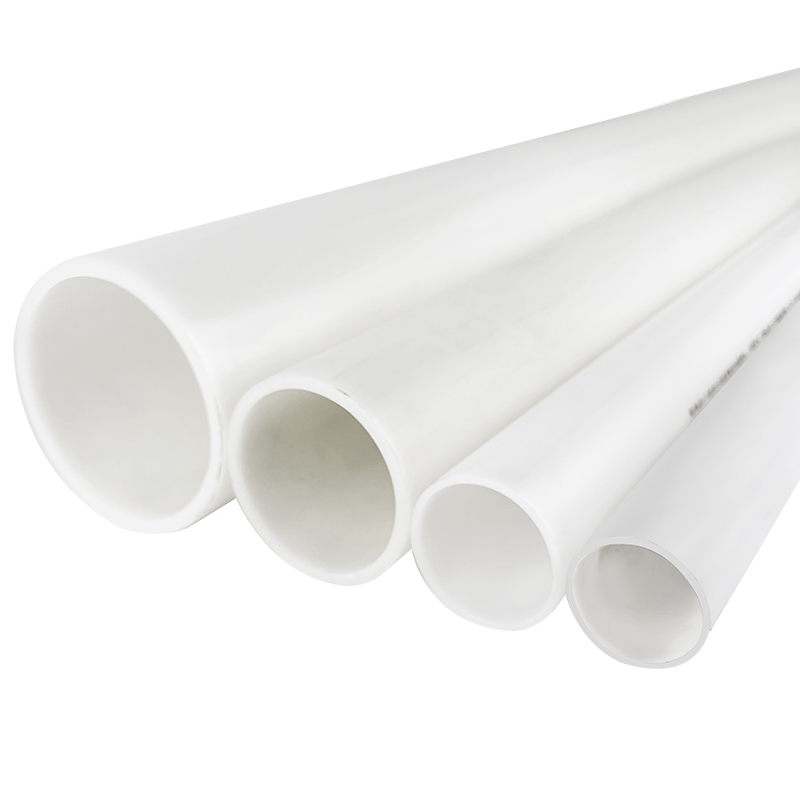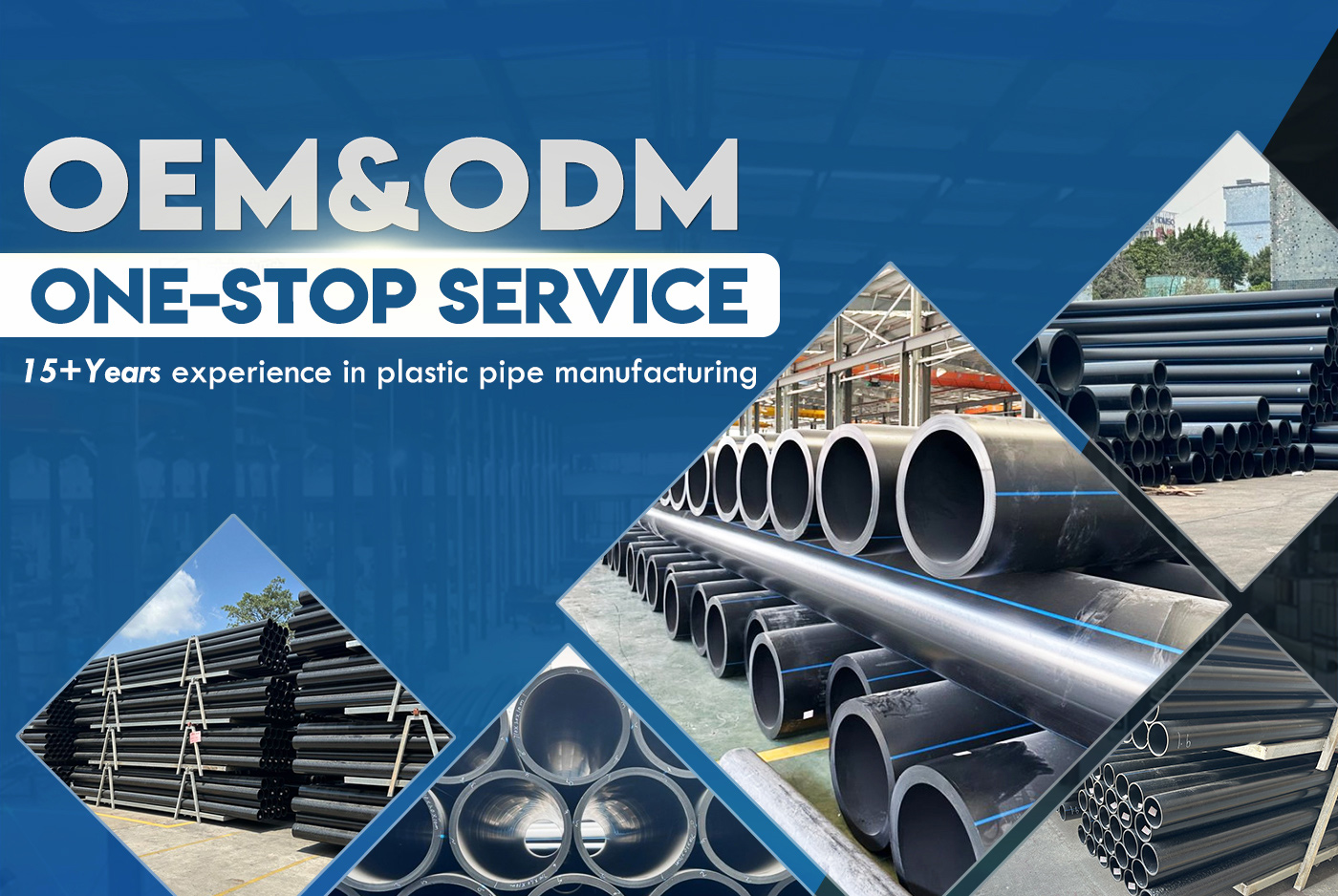Top 2 HDPE Pipe and Fitting Applications: Water System & Wire Protection
Categories:HDPE Pipe and Fitting Author: author
High-Density Polyethylene (HDPE) pipes and fittings have emerged as the backbone of modern water and electrical systems. Their durability, flexibility, and chemical resistance make them suitable for a wide variety of applications. Among these, HDPE water systems and HDPE electrical conduits for wire protection are the most prominent.
HDPE Water Plumbing Systems: Agricultural Irrigation, Water Supply, and Drainage
Water systems are one of the largest applications of HDPE, and the material's unique properties make it ideal for challenging environments. ULP offers HDPE pipes and fittings designed for agricultural irrigation, municipal water supply, and drainage systems.
1. HDPE Agricultural Irrigation: Features and Accessories
Agricultural irrigation demands pipes that can withstand long-term exposure to sunlight, chemicals, fertilizers, and varying pressures. ULP HDPE irrigation pipes are specifically engineered with the following features:
- UV Resistance: HDPE pipes are stabilized against ultraviolet rays, preventing brittleness and cracking under prolonged outdoor exposure.
- Flexibility: The pipes can bend around uneven terrain without the need for multiple joints, which reduces leakage points.
- Chemical Resistance: Resistant to fertilizers and pesticides, ensuring longevity even in high-chemical-use environments.
- Pressure Rating: Pipes are available in various pressure ratings (PN4, PN6, PN10), suitable for drip, sprinkler, or gravity-fed systems.
HDPE Agricultural Irrigation Pipe
Common Fittings and Accessories
ULP provides a wide range of compatible fittings to support agricultural irrigation systems:
- Elbows and Tees: For changing flow direction or splitting pipelines.
- Couplers: To join two pipe sections seamlessly.
- Reducers: To adjust pipe diameters for optimal flow rates.
- End Caps and Plugs: For system termination or temporary closures.
- Valves: Gate valves and ball valves for precise water control.
Compared with PVC or metal pipes, HDPE offers superior flexibility, lower installation weight, and better resistance to cracking under freeze-thaw conditions. Metal pipes may corrode over time, while PVC can be brittle under high UV exposure—making HDPE the preferred choice for long-term irrigation systems.
2. HDPE Water Supply Systems
HDPE water supply pipes are widely used in urban and industrial water networks. ULP pipes are engineered for high reliability, offering:
- Leak-Free Joints: Fusion welding or electrofusion joints create monolithic connections that eliminate leakage points.
- Corrosion and Scale Resistance: Unlike steel pipes, HDPE does not corrode, reducing maintenance costs.
- Long Service Life: Typically exceeding 50 years under standard operating conditions.
- Wide Diameter Options: From 20mm for residential plumbing to over 1200mm for municipal supply.
HDPE Water Supply Pipe and Fitting
Fittings for Water Supply
ULP provides:
- Electrofusion Fittings: For automated, secure connections.
- Compression Couplers: Easy-to-install joints for quick repairs.
- Flanges and Adapters: For integrating HDPE with existing metal or PVC networks.
- Valves and Hydrants: Essential for distribution control and maintenance.
HDPE water supply systems differ from agricultural irrigation in terms of pressure rating, joint technology, and compliance with drinking water standards. ULP ensures that each pipe and fitting meets these rigorous requirements.
3. HDPE Drainage Pipes
HDPE drainage pipes are critical in urban planning, agriculture, and industrial applications. Key features include:
- High Impact Resistance: Capable of handling heavy soil loads and vehicular traffic above ground.
- Smooth Inner Surface: Reduces friction, ensuring efficient water flow and minimizing blockages.
- Chemical and Corrosion Resistance: Suitable for stormwater, wastewater, and acidic soils.
HDPE Drainage Fittings
- Elbows and Tees: For designing complex drainage layouts.
- Access Points and Manholes: Allow maintenance and inspection.
- Socketed Pipes and Couplings: Ensure tight, leak-proof connections.
Compared with concrete or clay pipes, HDPE is lighter, easier to install, and less prone to cracking. Automated manufacturing of ULP ensures consistent dimensions and pressure ratings, making installation faster and more reliable.
HDPE Electrical Conduits: Protecting Wires and Cables
Electrical installations require durable conduits to protect wires from physical and environmental damage. ULP HDPE electrical conduits are ideal for residential, commercial, and industrial use.
1. Durability and Flexibility
HDPE conduits resist crushing, impact, and chemical exposure, making them suitable for underground and exposed installations. Their flexibility allows routing through complex layouts with minimal fittings, reducing installation time and potential leak points.
2. Easy Installation
- Lightweight design reduces labor and handling costs.
- Smooth interior walls allow easy cable pulling without damage.
- Available in multiple diameters, wall thicknesses, and colors for identification and application-specific requirements.
3. Fittings and Accessories
- Elbows, Couplers, and Tees: For directional changes and branching.
- End Caps and Entry Boxes: For terminations and junctions.
- Bends and Expansion Joints: For accommodating movement and thermal expansion.
Compared with metal conduits, HDPE is non-corrosive and easier to cut and join, and it avoids the risk of electrical conductivity issues, offering enhanced safety.
FAQ: HDPE Pipes and Fittings for Water Systems & Wire Protection
What are HDPE pipes and fittings used for?
HDPE (High-Density Polyethylene) pipes and fittings are used for transporting water, sewage, agricultural irrigation, and as protective conduits for electrical wiring. Their flexibility, corrosion resistance, and long service life make them ideal for both underground and above-ground applications.
What makes HDPE pipes suitable for agricultural irrigation?
HDPE irrigation pipes are lightweight, flexible, and resistant to UV radiation. They can withstand chemicals like fertilizers and pesticides, adapt to uneven terrain, and handle various pressure ratings suitable for drip irrigation, sprinklers, or gravity-fed systems. ULP also provides specialized fittings such as elbows, tees, couplers, and valves for complete irrigation solutions.
How do HDPE water supply pipes compare to traditional materials?
Compared to PVC or steel pipes, HDPE pipes offer:
- Higher flexibility and fewer joints
- Superior corrosion and scale resistance
- Long service life (50+ years)
- Leak-free connections using fusion or compression fittings
What types of HDPE drainage pipes are available?
ULP provides HDPE drainage pipes for stormwater, sewer systems, and agricultural drainage. Key features include high impact resistance, UV resistance, and chemical resistance. Fittings include elbows, tees, access points, and couplings for easy installation and maintenance.
Why are HDPE pipes ideal for electrical conduits?
HDPE electrical conduits are non-conductive, flexible, and resistant to impact and corrosion. They protect wires from physical damage, chemical exposure, and environmental factors. Their lightweight design simplifies installation, while smooth inner surfaces prevent wire abrasion during cable pulling.
How long do HDPE pipes last?
Under standard operating conditions, HDPE pipes typically last over 50 years. Their longevity depends on proper installation, environmental conditions, and maintenance.
Can HDPE pipes be customized for specific projects?
Yes. ULP provides OEM/ODM services, allowing customization in:
- Pipe diameters and wall thickness
- Colors for identification
- Packaging for project convenience
- Specialized fittings for irrigation, water supply, drainage, or electrical applications
Why Choose ULP for One-Stop HDPE Solutions?
With over 15 years of experience and a 10,000+ square meter factory, ULP ensures reliable, efficient, and cost-effective solutions for diverse pipeline needs.
- Comprehensive HDPE Range: Water supply, agricultural irrigation, drainage, and electrical conduits.
- Customizable Products: OEM/ODM options including color, size, and packaging.
- Automated Production: Ensures uniform quality across thousands of meters of pipe.
- Skilled Workforce: Over 100 staff dedicated to technical support and quality inspection.
HDPE Pipe and Fittings Manufacturer
Conclusion
HDPE pipes and fittings provide highly reliable solutions for water systems and wire protection. From agricultural irrigation with specialized fittings to municipal water supply and drainage networks, and durable electrical conduits, the flexibility, chemical resistance, and long life of HDPE make it the material of choice.
ULP combines industry-leading manufacturing capabilities, customizable solutions, and exceptional service to deliver pipelines and conduits that meet diverse infrastructure needs. For anyone seeking high-quality HDPE pipes and fittings, ULP offers a complete, one-stop solution that ensures efficiency, reliability, and longevity. Browse our HDPE Pipe and Fittings or contact us for more detailed information.


